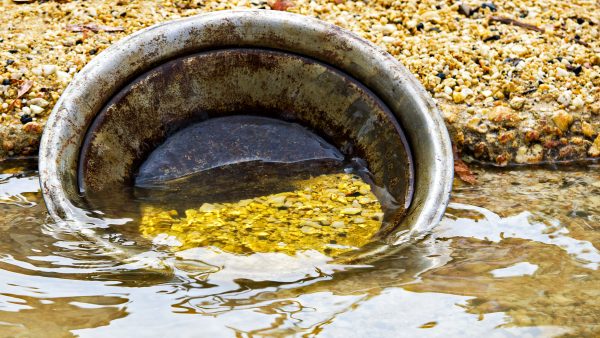Non-renewable Resource Definition
A non-renewable resource cannot be replenished within a lifetime and will eventually run out. For example, oil is consumed and faces depletion.
View Lesson on Natural Resource Distribution
Become a member to get full access to our entire library of learning videos, reading material, quiz games, simple DIY activities & more.
Become a member to get full access to our entire library of learning videos, quiz games, & more.
Plans & Pricingto watch this full video.

Access All Videos
and Lessons, No Limits.
Access All Videos

No credit card required,
takes 7 sec to signup.
No card required

Ready-to-go lessons
that save you time.
Ready-to-go lessons
If you are on a school computer or network, ask your tech person to whitelist these URLs:
*.wistia.com, fast.wistia.com, fast.wistia.net, embedwistia-a.akamaihd.net
Sometimes a simple refresh solves this issue. If you need further help, contact us.
Natural Resource Distribution
Fun Facts
- Fossil fuels are non-renewable resources made from ancient living things.
- Scientists are developing alternative ways to power cars, like electricity and hydrogen, to decrease their dependency on fossil fuels.
- Fossil fuels are non-renewable resources that emit carbons when burned, producing carbon emissions.
Why Do We Need To Know About Non-renewable Resource
Learning about non-renewable resources shows us how important they are in our lives and why we need to use them wisely. We rely on things like oil and coal for heating our homes, getting around, and running businesses. This means our comfort and the economy depend on these resources that won’t last forever.
Knowing how we get and use these resources can lead to jobs in protecting the environment and shaping policies to reduce harm. This knowledge also helps in coming up with new ideas for things that can replace these resources, like making plastics from plants or using energy from the sun and wind. It shows why it’s important to take care of non-renewable resources for a better future.
Frequently Asked Questions
Check out the Full Lesson on Natural Resource Distribution
In this lesson, we learn that:
- Natural resources are things people use from nature like fossil fuels, water and minerals.
- Earth's natural resources are unevenly distributed across the globe.
- This can be explained by geological process like the movement of tectonic plates, erosion and volcanic activity.
Related Topics
- Adaptation Definition
- Air Mass Definition
- Biomimicry Definition
- Carbon Dioxide Definition
- Coastal Erosion Definition
- Compound Definition
- Condensation Definition
- Conservation Definition
- Convection Definition
- Corona Definition
- Earth’s Orbit Definition
- Ecosystem Definition
- Electromagnetic Radiation Definition
- Evaporation Definition
- Fossil Definition
- Geologic Processes Definition
- Geologic Time Scale Definition
- Greenhouse Gases Definition
- Groundwater Definition
- Group Behavior Definition
- Habitat Definition
- Keystone Species Definition
- Kuiper Belt Definition
- Landform Definition
- Light Definition
- Liquid Definition
- Lunar Mare Definition
- Magnetic Field Definition
- Motion Definition
- Mutation Definition
- Natural Disaster Definition
- Natural Resource Definition
- Nervous System Definition
- Non-renewable Energy Definition
- Non-renewable Resource Definition
- Paleontologist Definition
- Parasitism Definition
- Partial Eclipse Definition
- Pendulum Definition
- Pollination Definition
- Predation Definition
- Reversible Change Definition
- Solid Definition
- Tides Definition
- Transform Boundary Definition
- Water Cycle Definition
- Weather Map Definition
- Weathering Definition


Start a Free Trial Today. Get a $5 Amazon Gift Card!
Teachers! Start a free trial & we'll send your gift card within 1 day. Only cards left. Try it now.
Select Grade
Select Subject
This email is associated with a Science Kit subscription. Kit subscriptions are managed on this separate page: Manage Subscription

-
Download InvoiceScience & Math$/yr
-
Download InvoiceScience Only$/yr

access all lessons
• No credit card required •
"My students loved the videos. I started the video subscription in May and used them as a review before the state test, which I know contributed to 100% of my class passing the state test."
Rhonda Fox 4th Grade Teacher, Ocala, Florida
Use Generation Genius in Your School
Access all lessons free for 30 days.
"My students loved the videos. I started the video subscription in May and used them as a review before the state test, which I know contributed to 100% of my class passing the state test."
Rhonda Fox 4th Grade Teacher, Ocala, Florida
• No credit card required •
Already a member? Sign In
* no credit card required *

* no credit card required *
* no credit card required *

Get District Quote
Discounts start at 3 schools.
Sent!
Thank you for your inquiry.
We will email you a quote as soon as we can.

to Discover the Benefits of Generation Genius
Learn How to Save for Your School & District!
Please login or create an account to access additional resources

no credit card required
Skip, I will use a 3 day free trial
Enjoy your free 30 days trial
-
Unlimited access to our full library
of videos & lessons for grades K-5. -
You won’t be billed unless you keep your
account open past your 14-day free trial. -
You can cancel anytime in 1 click on the
manage account page or by emailing us.
-
Unlimited access to our full library of videos & lessons for grades K-5.
-
You won't be billed unless you keep your account open past 14 days.
-
You can cancel anytime in 1-click on the manage account page.
Cancel anytime in 1-click on the manage account page before the trial ends and you won't be charged.
Otherwise you will pay just $10 CAD/month for the service as long as your account is open.
Cancel anytime on the manage account page in 1-click and you won't be charged.
Otherwise you will pay $10 CAD/month for the service as long as your account is open.
We just sent you a confirmation email. Enjoy!
Done



























































































































 GENERATION GENIUS
GENERATION GENIUS